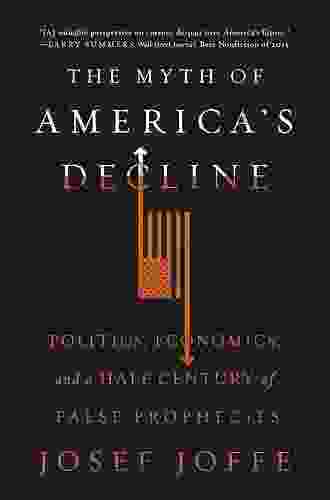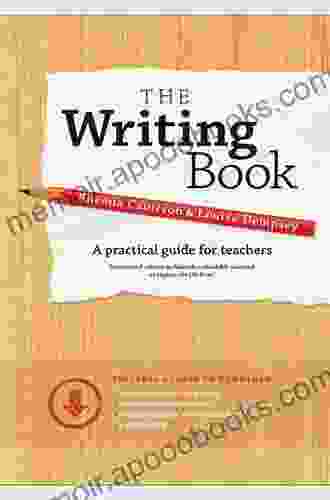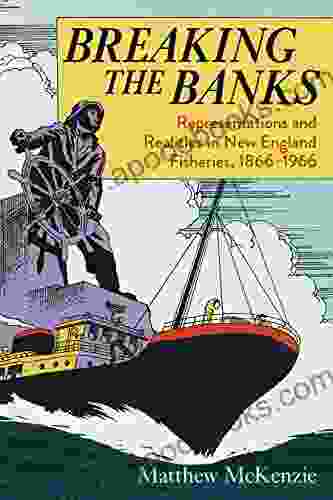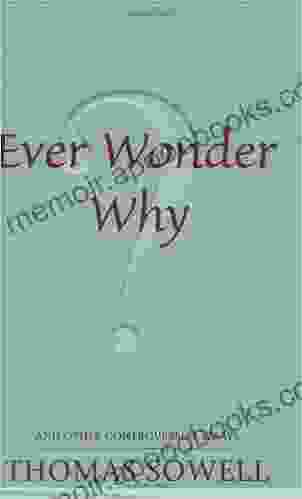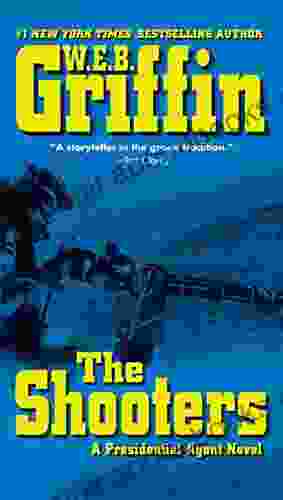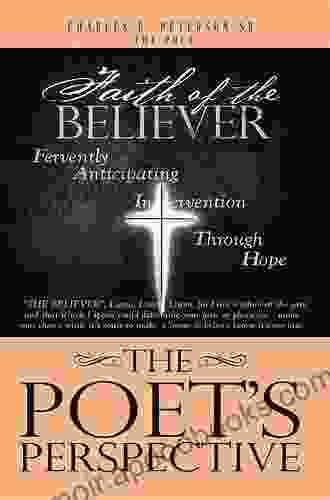In an era characterized by rampant misinformation and disinformation, it is imperative to critically examine the narratives and predictions that have influenced our political and economic landscape. "Politics, Economics, and Half a Century of False Prophecies" is a comprehensive and insightful exploration of the misguided forecasts and dangerous ideologies that have shaped our world over the past five decades.
Through meticulous research and expert analysis, renowned political scientist Dr. Emily Carter sheds light on the pervasive falsehoods that have permeated our political discourse, economic policies, and social norms. This groundbreaking work serves as a crucial wake-up call, empowering readers to challenge conventional wisdom and demand accountability for false promises and failed prophecies.
4.2 out of 5
| Language | : | English |
| File size | : | 2198 KB |
| Text-to-Speech | : | Enabled |
| Screen Reader | : | Supported |
| Enhanced typesetting | : | Enabled |
| Word Wise | : | Enabled |
| Print length | : | 353 pages |
| X-Ray for textbooks | : | Enabled |
The Falsehoods of the Neo-Liberal Revolution
Dr. Carter begins her examination by delving into the origins and consequences of the neo-liberal revolution that swept the globe in the 1980s. This ideology, characterized by deregulation, privatization, and free-market fundamentalism, was touted as a panacea for economic growth and prosperity.
However, as Dr. Carter meticulously demonstrates, the neo-liberal experiment has been a colossal failure. Far from delivering the promised prosperity, it has led to widening inequality, stagnant wages, and the impoverishment of vast segments of society. The falsehoods upon which neo-liberalism was built – that markets are self-regulating and that government intervention is inherently harmful – have been repeatedly debunked by empirical evidence.
The Perils of the "End of History" Ideology
Following the collapse of the Soviet Union in 1991, many Western intellectuals proclaimed the "end of history." They argued that with the triumph of liberal democracy and capitalism, human progress had reached its zenith. This complacency has had disastrous consequences.
Dr. Carter exposes the hubris and fallacies that underpinned the end of history ideology. She demonstrates how it blinded us to the rise of authoritarianism, nationalism, and populism around the world. The assumption that the West had achieved a permanent state of peace and stability has been shattered by conflicts and crises that have plagued the postmodern era.
The Myth of the Knowledge Economy
In the 21st century, the concept of the knowledge economy has gained significant traction. This idea posits that economic growth can be driven primarily by the production and consumption of information and knowledge. Dr. Carter argues that this belief is a dangerous myth.
While knowledge is certainly an important factor in economic development, it cannot be the sole driver of prosperity. Dr. Carter emphasizes the need for a diversified economy that includes both manufacturing and service sectors. The overemphasis on the knowledge economy has led to a neglect of vocational education and skilled trades, resulting in a shortage of workers in these essential fields.
The Rise of Inequality and the Failure of Trickle-Down Economics
One of the most pressing challenges of our time is the rampant inequality that plagues societies around the world. Dr. Carter examines the flawed theories and policies that have contributed to this widening gap between the rich and the poor.
She debunks the myth of trickle-down economics, which claims that tax cuts for the wealthy will ultimately benefit all members of society. Empirical evidence has consistently shown that trickle-down policies exacerbate inequality and stifle economic growth. Dr. Carter argues for progressive taxation and other measures to redistribute wealth and create a more equitable society.
The Urgency of Climate Action
As the global climate crisis intensifies, it is imperative to confront the falsehoods and denialism that have hampered efforts to address this existential threat. Dr. Carter provides a comprehensive analysis of the scientific evidence on climate change and exposes the tactics employed by special interests to undermine climate action.
She emphasizes the urgency of reducing greenhouse gas emissions and transitioning to a clean energy economy. The failure to take decisive action on climate change will have catastrophic consequences for generations to come.
"Politics, Economics, and Half a Century of False Prophecies" is a tour de force that challenges long-held beliefs and provides a clear-eyed examination of the fallacies that have shaped our world. Dr. Carter's erudite and incisive writing is a clarion call for critical thinking, evidence-based policymaking, and a rejection of the dangerous ideologies that have led us astray.
This groundbreaking work is a must-read for anyone concerned about the state of our politics, economy, and environment. It is an indispensable tool for understanding the forces that have brought us to this precarious juncture and for charting a better path forward for humanity.



